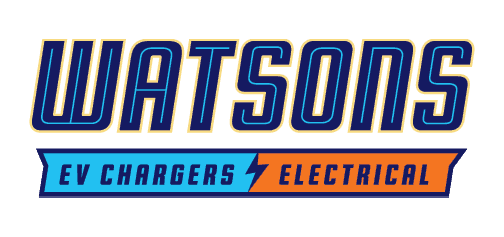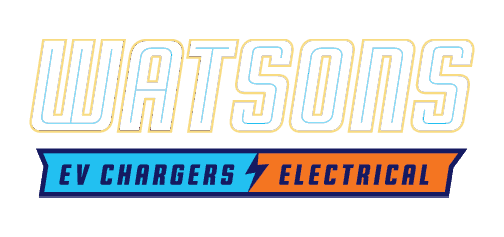How to Install an EV Home Charger by the Books
More drivers are converting to electric vehicles for their transportation needs. Whether commuters are excited about going green, want to take advantage of the tax rebates afforded by the recently signed Inflation Reduction Act (IRA), or love the style and capability of new electric vehicles, EVs are gaining momentum in the auto market. Of course, every EV needs a place to charge, and electric vehicle home charging stations are the perfect solution.
Thanks to Level 2 home charger technology, EV drivers can enjoy a practical, affordable, and convenient way to keep their EVs fully charged. Of course, one of the most frequently asked questions we get about EV home charger installation is if homeowners need an electrical permit to get started.
As the premier EV home charger installation team in the Gilroy, CA, and Santa Clara Valley area, Watson’s Charging Stations & Electric helps homeowners navigate the complexity of local permit laws every day. We put together a quick guide to answer your questions about electrical permitting concerning charging an EV at home. Read on to learn more.
Does Your Home Need Electrical Upgrades?
Did you know that roughly 80% of electric vehicle charging takes place on an EV home charger? Level 2 home chargers have become the standard electric car home charger because they are fast, efficient, and affordable. Most Level 2 chargers can add between 20 to 60 miles of driving range per hour of charging, which beats the dismal four miles of range added via the Level 1 charger that comes with your EV.
Unfortunately, not every home can handle a new Level 2 EV home charger. These fast chargers require a dedicated 240-volt circuit to deliver the necessary electricity. Depending on when and how your home was built, you may need some electrical upgrades before an electrician can install an EV home charger.
Some older electrical panels, like those from Federal Pacific and Zinsco, are already deemed unsafe for regular use, let alone the demand for a garage charging station. These outdated electrical panels should be replaced regardless of what kind of car you drive.
Beyond updating your service panel, you may also require a licensed electrician to run a circuit from your breaker panel to a new 240-volt outlet. Even if you have a more modern and safe electrical panel, it may not have enough room or ampacity to handle a new 240-volt breaker. Your utility company may require you to install a dedicated meter for your EV charger.
Does an EV Home Charger Require an Electrical Permit?
Suppose you are plugging your Level 1 charging cable into an existing dedicated 110-volt outlet or a 40-amp charger into an existing dedicated 240-volt outlet. In that case, you are not making any electrical upgrades to your home and, therefore, will not need to pull an electrical permit.
Since few homes have dedicated 110-volt or 240-volt outlets accessible to the garage, there is a good chance you will need an electrician to run a new line for your dedicated outlet. This kind of work, as well as any necessary electric panels, do require electrical permits.
There are two significant benefits of getting an electrical permit for your electric vehicle charger installation project. First, a permit ensures that the electricians on the job follow the best practices as determined by your local electrical and building codes. The last thing you want is to buy a $50,000 electric vehicle only to lose it in an electrical fire due to an EV garage charger’s improper and unsafe installation.
The second benefit is that you have official documentation detailing the upgrades when reporting changes to your homeowner’s insurance or when you decide to sell your house in the future.
Can a Homeowner Pull a Permit for Electrical Work?
You must obtain an electrical permit before you start your EV home charger installation project. Luckily, a building or electrical permit can be issued to a licensed contractor in California or the homeowner. If you, the homeowner, pull the permit yourself and hire electricians to complete the job, you are required under state law to purchase worker’s compensation insurance for the duration of the task.
You can save money on worker’s compensation insurance by hiring a licensed electrician with the necessary insurance and protection for their team.
Electrical permits also require the appropriate line diagrams for the electrical work. For example, if you are adding a dedicated 110-volt outlet for your Level 1 charger, you would need to supply a single-line diagram. Level 2 EV home chargers require a single-line diagram, along with proof that the existing service can handle the added load (a load calculation sheet) and two copies of the manufacturer’s installation instructions.
Determining your property’s electrical service load calculations involves adding up the amperage of your fixtures, appliances, and other electrical needs and comparing the sum to your electrical service’s capacity. While the math to create a load calculator sheet is not rocket science, it can be complicated for someone unfamiliar with electrical calculations.
If you are comfortable creating line diagrams and calculating electrical loads, you can easily pull any necessary permits for your property via the Development Service Center in Gilroy, CA.
Let Watson’s Charging Stations & Electric Handle Your EV Home Charger Project
If you feel overwhelmed by the scope of installing an EV home charger, you are not alone. From determining if your current electrical infrastructure is up to the task to filing the proper permit paperwork, installing an EV charger at home is a complex project.
At Watson’s Charging Stations & Electric, we work to make electrifying your home as straightforward as possible. We can handle the entirety of your project to ensure that it is completed quickly, accurately, and up to code. Give us a call today for a free consultation on what it would take to get an EV home charger installed or for any of your electrical needs.


